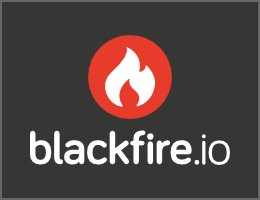Dealing with Concurrency with Locks
When a program runs concurrently, some part of code which modify shared resources should not be accessed by multiple processes at the same time. Symfony's Lock component provides a locking mechanism to ensure that only one process is running the critical section of code at any point of time to prevent race conditions from happening.
The following example shows a typical usage of the lock:
1 2 3 4 5 6 7 8 9
$lock = $lockFactory->createLock('pdf-creation');
if (!$lock->acquire()) {
return;
}
// critical section of code
$service->method();
$lock->release();Installing
In applications using Symfony Flex, run this command to install the Lock component:
1
$ composer require symfony/lockConfiguring
By default, Symfony provides a Semaphore
when available, or a Flock otherwise. You can configure
this behavior by using the lock key like:
1 2 3 4 5 6 7 8 9 10 11 12 13 14 15 16 17 18 19 20 21 22 23 24 25 26 27
# config/packages/lock.yaml
framework:
lock: ~
lock: 'flock'
lock: 'flock:///path/to/file'
lock: 'semaphore'
lock: 'memcached://m1.docker'
lock: ['memcached://m1.docker', 'memcached://m2.docker']
lock: 'redis://r1.docker'
lock: ['redis://r1.docker', 'redis://r2.docker']
lock: 'rediss://r1.docker?ssl[verify_peer]=1&ssl[cafile]=...'
lock: 'zookeeper://z1.docker'
lock: 'zookeeper://z1.docker,z2.docker'
lock: 'zookeeper://localhost01,localhost02:2181'
lock: 'sqlite:///%kernel.project_dir%/var/lock.db'
lock: 'mysql:host=127.0.0.1;dbname=app'
lock: 'pgsql:host=127.0.0.1;dbname=app'
lock: 'pgsql+advisory:host=127.0.0.1;dbname=app'
lock: 'sqlsrv:server=127.0.0.1;Database=app'
lock: 'oci:host=127.0.0.1;dbname=app'
lock: 'mongodb://127.0.0.1/app?collection=lock'
lock: '%env(LOCK_DSN)%'
# named locks
lock:
invoice: ['semaphore', 'redis://r2.docker']
report: 'semaphore'1 2 3 4 5 6 7 8 9 10 11 12 13 14 15 16 17 18 19 20 21 22 23 24 25 26 27 28 29 30 31 32 33 34 35 36 37 38 39 40 41 42 43 44 45 46 47 48 49 50 51 52 53 54 55 56
<!-- config/packages/lock.xml -->
<?xml version="1.0" encoding="UTF-8" ?>
<container xmlns="http://symfony.com/schema/dic/services"
xmlns:xsi="http://www.w3.org/2001/XMLSchema-instance"
xmlns:framework="http://symfony.com/schema/dic/symfony"
xsi:schemaLocation="http://symfony.com/schema/dic/services
https://symfony.com/schema/dic/services/services-1.0.xsd
http://symfony.com/schema/dic/symfony https://symfony.com/schema/dic/symfony/symfony-1.0.xsd">
<framework:config>
<framework:lock>
<framework:resource>flock</framework:resource>
<framework:resource>flock:///path/to/file</framework:resource>
<framework:resource>semaphore</framework:resource>
<framework:resource>memcached://m1.docker</framework:resource>
<framework:resource>memcached://m1.docker</framework:resource>
<framework:resource>memcached://m2.docker</framework:resource>
<framework:resource>redis://r1.docker</framework:resource>
<framework:resource>redis://r1.docker</framework:resource>
<framework:resource>redis://r2.docker</framework:resource>
<framework:resource>zookeeper://z1.docker</framework:resource>
<framework:resource>zookeeper://z1.docker,z2.docker</framework:resource>
<framework:resource>zookeeper://localhost01,localhost02:2181</framework:resource>
<framework:resource>sqlite:///%kernel.project_dir%/var/lock.db</framework:resource>
<framework:resource>mysql:host=127.0.0.1;dbname=app</framework:resource>
<framework:resource>pgsql:host=127.0.0.1;dbname=app</framework:resource>
<framework:resource>pgsql+advisory:host=127.0.0.1;dbname=app</framework:resource>
<framework:resource>sqlsrv:server=127.0.0.1;Database=app</framework:resource>
<framework:resource>oci:host=127.0.0.1;dbname=app</framework:resource>
<framework:resource>mongodb://127.0.0.1/app?collection=lock</framework:resource>
<framework:resource>%env(LOCK_DSN)%</framework:resource>
<!-- named locks -->
<framework:resource name="invoice">semaphore</framework:resource>
<framework:resource name="invoice">redis://r2.docker</framework:resource>
<framework:resource name="report">semaphore</framework:resource>
</framework:lock>
</framework:config>
</container>1 2 3 4 5 6 7 8 9 10 11 12 13 14 15 16 17 18 19 20 21 22 23 24 25 26 27 28 29
// config/packages/lock.php
use Symfony\Config\FrameworkConfig;
return static function (FrameworkConfig $framework): void {
$framework->lock()
->resource('default', ['flock'])
->resource('default', ['flock:///path/to/file'])
->resource('default', ['semaphore'])
->resource('default', ['memcached://m1.docker'])
->resource('default', ['memcached://m1.docker', 'memcached://m2.docker'])
->resource('default', ['redis://r1.docker'])
->resource('default', ['redis://r1.docker', 'redis://r2.docker'])
->resource('default', ['zookeeper://z1.docker'])
->resource('default', ['zookeeper://z1.docker,z2.docker'])
->resource('default', ['zookeeper://localhost01,localhost02:2181'])
->resource('default', ['sqlite:///%kernel.project_dir%/var/lock.db'])
->resource('default', ['mysql:host=127.0.0.1;dbname=app'])
->resource('default', ['pgsql:host=127.0.0.1;dbname=app'])
->resource('default', ['pgsql+advisory:host=127.0.0.1;dbname=app'])
->resource('default', ['sqlsrv:server=127.0.0.1;Database=app'])
->resource('default', ['oci:host=127.0.0.1;dbname=app'])
->resource('default', ['mongodb://127.0.0.1/app?collection=lock'])
->resource('default', [env('LOCK_DSN')])
// named locks
->resource('invoice', ['semaphore', 'redis://r2.docker'])
->resource('report', ['semaphore'])
;
};Locking a Resource
To lock the default resource, autowire the lock factory using LockFactory:
1 2 3 4 5 6 7 8 9 10 11 12 13 14 15 16 17 18 19 20 21 22 23
// src/Controller/PdfController.php
namespace App\Controller;
use Symfony\Bundle\FrameworkBundle\Controller\AbstractController;
use Symfony\Component\HttpFoundation\Response;
use Symfony\Component\Lock\LockFactory;
class PdfController extends AbstractController
{
#[Route('/download/terms-of-use.pdf')]
public function downloadPdf(LockFactory $factory, MyPdfGeneratorService $pdf): Response
{
$lock = $factory->createLock('pdf-creation');
$lock->acquire(true);
// heavy computation
$myPdf = $pdf->getOrCreatePdf();
$lock->release();
// ...
}
}Caution
The same instance of LockInterface won't block when calling acquire
multiple times inside the same process. When several services use the
same lock, inject the LockFactory instead to create a separate lock
instance for each service.
Locking a Dynamic Resource
Sometimes the application is able to cut the resource into small pieces in order
to lock a small subset of processes and let others through. The previous example
showed how to lock the $pdf->getOrCreatePdf() call for everybody,
now let's see how to lock a $pdf->getOrCreatePdf($version) call only for
processes asking for the same $version:
1 2 3 4 5 6 7 8 9 10 11 12 13 14 15 16 17 18 19 20 21 22 23
// src/Controller/PdfController.php
namespace App\Controller;
use Symfony\Bundle\FrameworkBundle\Controller\AbstractController;
use Symfony\Component\HttpFoundation\Response;
use Symfony\Component\Lock\LockFactory;
class PdfController extends AbstractController
{
#[Route('/download/{version}/terms-of-use.pdf')]
public function downloadPdf($version, LockFactory $lockFactory, MyPdfGeneratorService $pdf): Response
{
$lock = $lockFactory->createLock('pdf-creation-'.$version);
$lock->acquire(true);
// heavy computation
$myPdf = $pdf->getOrCreatePdf($version);
$lock->release();
// ...
}
}Naming Locks
If the application needs different kind of Stores alongside each other, Symfony provides named lock:
1 2 3 4 5
# config/packages/lock.yaml
framework:
lock:
invoice: ['semaphore', 'redis://r2.docker']
report: 'semaphore'1 2 3 4 5 6 7 8 9 10 11 12 13 14 15 16 17
<!-- config/packages/lock.xml -->
<?xml version="1.0" encoding="UTF-8" ?>
<container xmlns="http://symfony.com/schema/dic/services"
xmlns:xsi="http://www.w3.org/2001/XMLSchema-instance"
xmlns:framework="http://symfony.com/schema/dic/symfony"
xsi:schemaLocation="http://symfony.com/schema/dic/services
https://symfony.com/schema/dic/services/services-1.0.xsd
http://symfony.com/schema/dic/symfony https://symfony.com/schema/dic/symfony/symfony-1.0.xsd">
<framework:config>
<framework:lock>
<framework:resource name="invoice">semaphore</framework:resource>
<framework:resource name="invoice">redis://r2.docker</framework:resource>
<framework:resource name="report">semaphore</framework:resource>
</framework:lock>
</framework:config>
</container>1 2 3 4 5 6 7 8 9
// config/packages/lock.php
use Symfony\Config\FrameworkConfig;
return static function (FrameworkConfig $framework): void {
$framework->lock()
->resource('invoice', ['semaphore', 'redis://r2.docker'])
->resource('report', ['semaphore']);
;
};An autowiring alias is created for each named lock with a name using the camel
case version of its name suffixed by LockFactory.
For instance, the invoice lock can be injected by naming the argument
$invoiceLockFactory and type-hinting it with
LockFactory:
1 2 3 4 5 6 7 8 9 10 11 12 13 14 15
// src/Controller/PdfController.php
namespace App\Controller;
use Symfony\Bundle\FrameworkBundle\Controller\AbstractController;
use Symfony\Component\HttpFoundation\Response;
use Symfony\Component\Lock\LockFactory;
class PdfController extends AbstractController
{
#[Route('/download/terms-of-use.pdf')]
public function downloadPdf(LockFactory $invoiceLockFactory, MyPdfGeneratorService $pdf): Response
{
// ...
}
}
